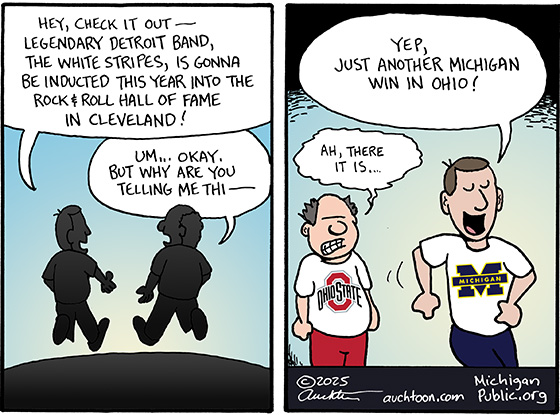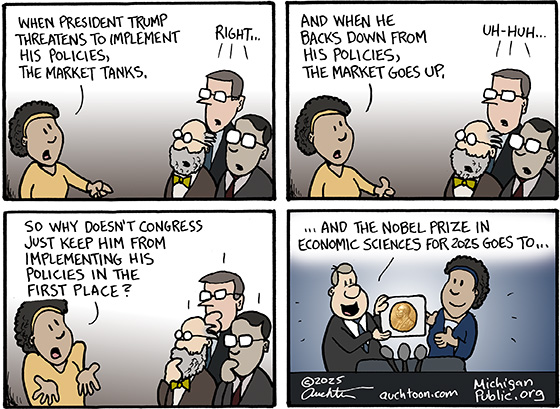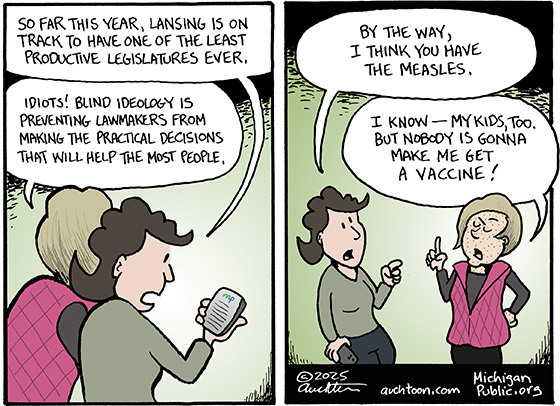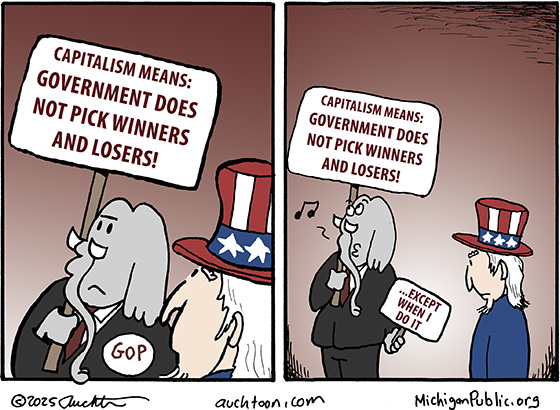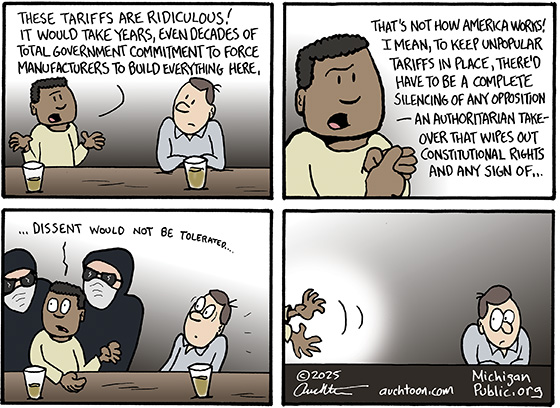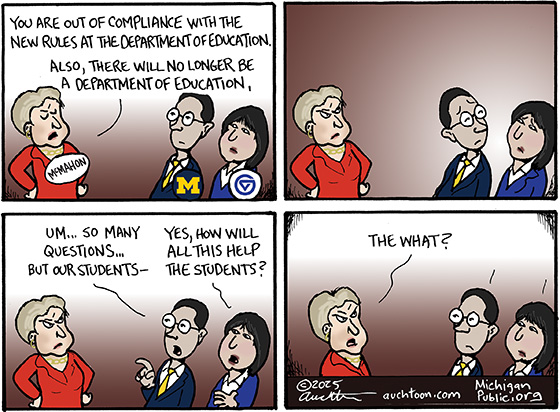Merit only?
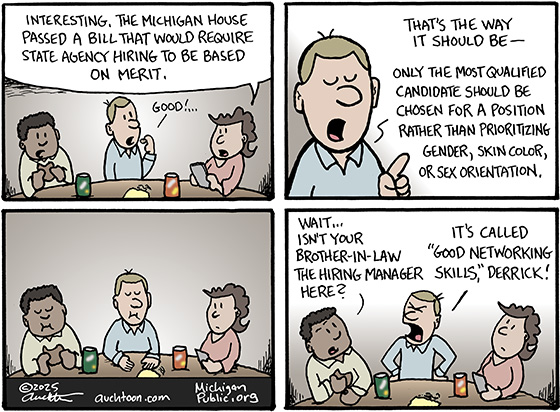
I was listening to Michigan Public (naturally) when I heard the story about the Michigan House of Representatives passing a bill last week that would require state agency hiring decisions to be based on merit.
Here’s what caught my attention: The bill passed with nearly complete bipartisan support — all but one representative voted for it. Whoa! That level of agreement between Democrat and Republican politicians seems …unlikely. Turns out, there was agreement on the vote, but not really on the intention.
As you might imagine, Republicans see it as repudiation of DEI policies. Representative Angela Rigas (R-Alto) said, “Only the most qualified candidates should be chosen for a position rather than prioritizing gender, skin color, or sexual orientation.”
Democrats, on the other hand, see it as repudiation of nepotism, legacy advantages, and other unfair favoritism. Representative Erin Byrnes (D-Dearborn) said, “This bill helps to create opportunity by eroding the barrier of the old boys’ club as we work toward a more equal playing field for all Michiganders. Michigan is stronger when various backgrounds and experiences empower the best and brightest.”
The bill goes next to the Senate. It will be interesting to see if it holds together there. Basically, they will all have to agree to pass legislation that is against DEI, but for diversity, equity, and inclusion.
